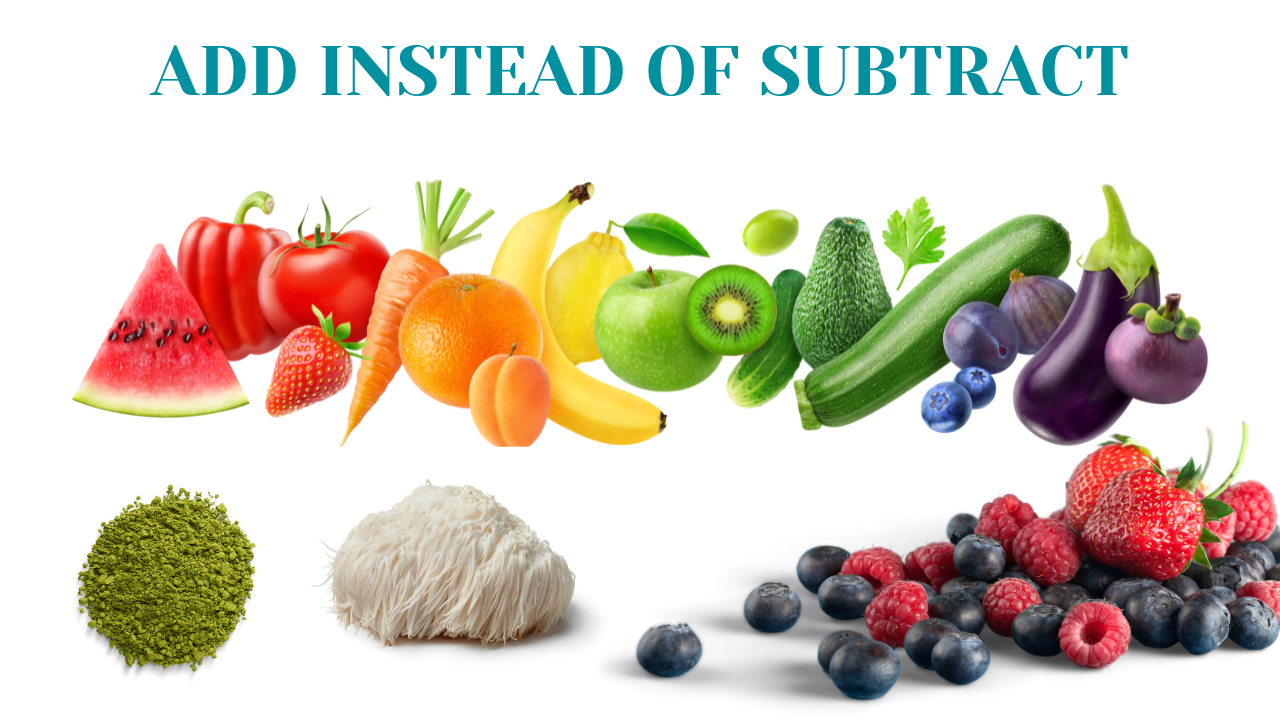Menopause Menu: Add Instead Of Subtract
Oct 02, 2021
My MENOPAUSE MENU series is dedicated to exploring foods that you can easily assimilate into your diet. Today’s Menopause Menu is all about how adding health-promoting foods is always better than eliminating foods that someone has deemed “bad.” The following foods are just a few of the foods that have wide-ranging benefits for your health, brain, and possibly your menopause symptoms.
Berries
There is strong evidence that eating berries, specifically blueberries, and blackberries, have beneficial effects on cognition, memory loss, and overall brain function. Both blueberries and blackberries are nutrition powerhouses, but blackberries have higher fiber content. Blackberries: 8-10g/cup, blueberries: 3-4g/cup. These deliciously nutritious powerhouses exert their benefits through their polyphenolic and antioxidant compounds. The polyphenols and antioxidants in berries reduce inflammation and oxidative stress in the brain, thereby protecting it from harmful free radicals.
Rainbow Diet
Different pigments in foods have individual benefits, many of them providing anti-inflammatory perks. One of the reasons is their anthocyanin content, which are natural plant pigments that give your fruits and veggies their red, blue, and purple color. Anthocyanins have demonstrated a wide range of health benefits. So next time you head to the grocery store, reach for the purple carrots and potatoes. A few examples of diets that show benefits in lowering inflammation are the Mediterranean and the Paleolithic diet. But that doesn't mean you have to stick to those. Instead, start by making a few simple changes to your plate.
Lions Mane
Lion’s Mane mushroom ( H.erinaceus), a culinary and medicinal mushroom that gets its name from its clump of dangling spines resembling a lion’s mane. It has been studied extensively for its neuroprotective properties and shown to promote positive brain and nerve health. In addition, lion’s Mane is effective in improving mild cognitive impairment.
Matcha
If you want maximum brain benefit from your nutrition, you may want to switch your morning ☕ for a cup of matcha. Matcha, which is essentially theanine-rich powdered green tea, contains caffeine, so be aware if you're sensitive to caffeine.
Benefits at a glance:
✔️Reduced stress & anxiety
✔️Lower cholesterol
✔️Improved concentration & memory
✔️Improved cognitive abilities
✔️Increased energy
Research has shown that it may have specific benefits for the dorsolateral prefrontal cortex (dlPFC), the part of the rational brain that plays a role in self-control and self-regulation. Matcha contains the amino acid L-theanine, which exhibits a stress-reducing effect in humans. L-theanine, in turn, promotes activity within the dlPFC, helping you stay more focused, less stressed, and through its caffeine, energized. Although all green teas contain theanine, matcha has the highest levels.
These are only a few examples that you can include to harness the health-promoting benefits of food. Check out my other Menopause Menu posts for more.



